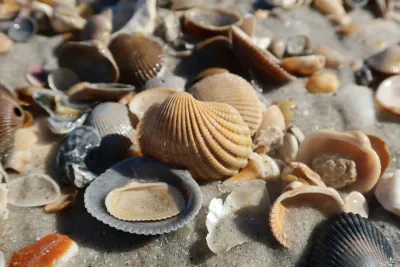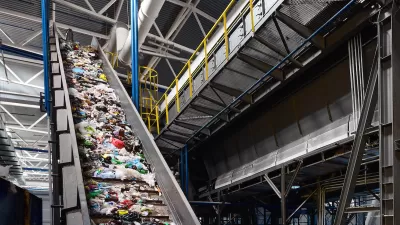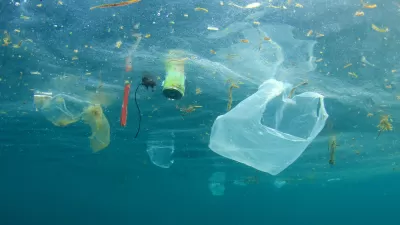USC researchers have created a biodegradable, marine-safe plastic alternative using calcium carbonate from seashells, offering a promising solution to ocean pollution.

Researchers at USC Viterbi School of Engineering have developed a new biodegradable plastic substitute that could help reduce marine pollution. Led by Dr. Eun Ji Chung, the team used calcium carbonate — a mineral found in seashells — and combined it with poly (1,8-octanediol-co-citrate) (POC), a biocompatible polymer approved by the FDA. This innovative material, dubbed POC-CC, mimics the properties of traditional plastics while offering the added benefit of breaking down in marine environments without producing harmful microplastics.
As reported by Greta Harrison, the inspiration for the project stemmed from Chung’s growing concern about plastic waste during the COVID-19 pandemic, particularly from sterile single-use lab materials. Drawing on her earlier research with citric acid-based biodegradable polymers, Chung realized she could adapt this technology for more sustainable, environmentally friendly applications. By incorporating calcium particles derived from seashells and heating the mixture, the team produced a sturdy prototype — including soda can rings — capable of replacing traditional petroleum-based plastics.
Testing revealed that the material safely degrades in ocean water over time, does not alter pH levels, and remains non-toxic to marine life such as green algae. Supported by a USC Sea Grant, the project emphasizes the importance of sustainable innovation along urban coastlines. Chung’s lab now plans to refine the material further for faster degradation and expand its use to other everyday products like stronger, eco-friendly straws — potentially reshaping how we think about plastic and its environmental legacy.
FULL STORY: USC Researchers Develop Plastic Substitute from Mineral Found in Seashells

Planetizen Federal Action Tracker
A weekly monitor of how Trump’s orders and actions are impacting planners and planning in America.

Maui's Vacation Rental Debate Turns Ugly
Verbal attacks, misinformation campaigns and fistfights plague a high-stakes debate to convert thousands of vacation rentals into long-term housing.

Cuomo Is the Candidate of Both NIMBYs and Developers. What Gives?
In the New York City mayoral race, odd bedfellows align to preserve the housing status quo.

San Antonio and Austin are Fusing Into one Massive Megaregion
The region spanning the two central Texas cities is growing fast, posing challenges for local infrastructure and water supplies.

Charlottesville Temporarily Has No Zoning Code
A judge ordered the Virginia city to throw out its newly revised zoning code, leaving permitting for new development in legal limbo.

In California Battle of Housing vs. Environment, Housing Just Won
A new state law significantly limits the power of CEQA, an environmental review law that served as a powerful tool for blocking new development.
Urban Design for Planners 1: Software Tools
This six-course series explores essential urban design concepts using open source software and equips planners with the tools they need to participate fully in the urban design process.
Planning for Universal Design
Learn the tools for implementing Universal Design in planning regulations.
Heyer Gruel & Associates PA
JM Goldson LLC
Custer County Colorado
City of Camden Redevelopment Agency
City of Astoria
Transportation Research & Education Center (TREC) at Portland State University
Jefferson Parish Government
Camden Redevelopment Agency
City of Claremont





























